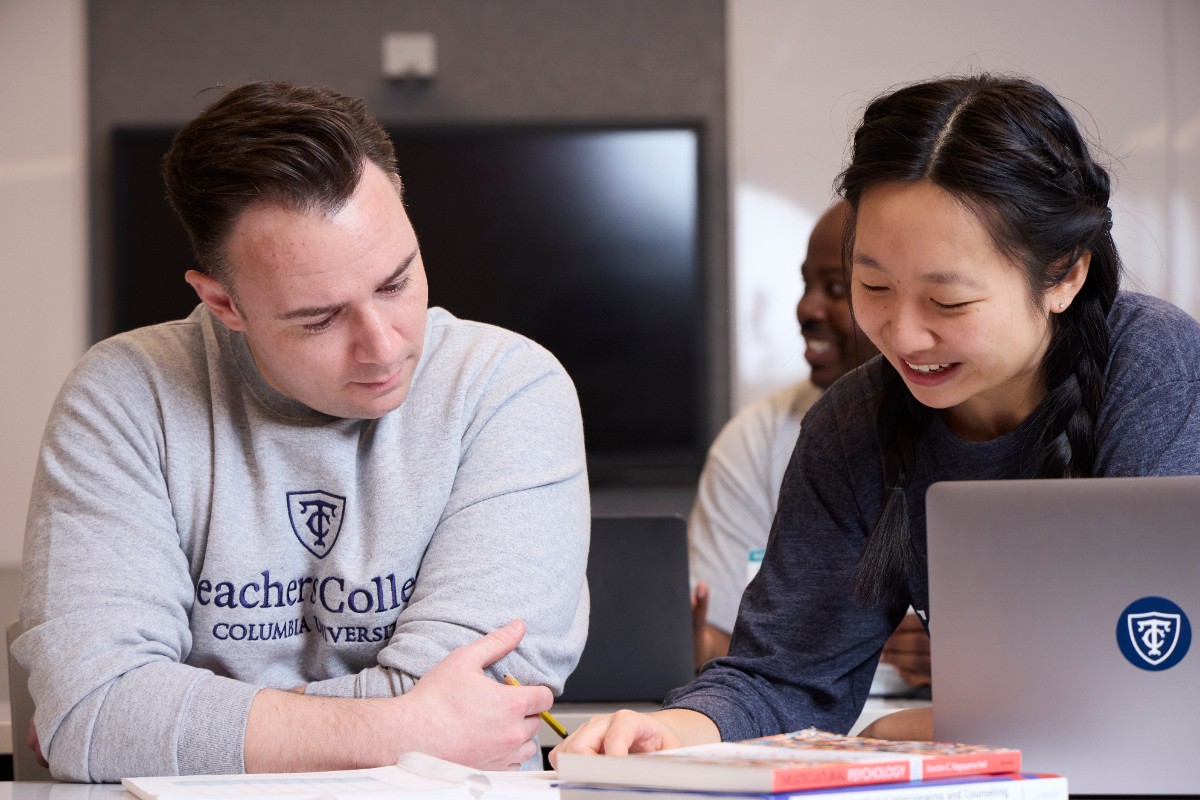As higher education continues to evolve, students face growing challenges, from recent affirmative action rulings to persistent issues of access and equity. TC’s Online School Counseling program and advanced certificate programs aim to rise to the occasion by equipping future school counselors with the expertise needed to prepare young people for their next steps. From faculty expertise to intensive practicum and fieldwork, students have the opportunity to contribute to higher education as college-readiness counselors to support the larger field.
“There have been major shifts in the school counseling field over the past few years from navigating the pandemic to the growing trend of schools adopting test-optional policies,” explains Becky Reed (Ph.D. ’17, Ed.M. ’09), a lecturer in TC’s Counseling Psychology program. “Our program prepares future counselors to address the issues that we face in the present, but with an eye for the future as well — ensuring rising college students receive the support they need for long-term success.”
The online program is purposefully crafted to equip aspiring counselors with the essential tools needed to navigate the complexities of supporting students through both academic and personal challenges. Through a blend of coursework, collaboration with experienced faculty and hands-on fieldwork, this program empowers future counselors to not only advise students through major life transitions like college, but also to address socio-emotional struggles with compassion and expertise.

Driving True Change in the World
“Getting students to enroll in college isn’t enough — we want them to persist and graduate,” explains Reed. As part of TC’s program, trainees take a comprehensive admissions course that equips them to guide students and families through the college process, from finding the right fit to addressing issues like diversity and marginalization. “We encourage trainees to reflect on their own values and biases, and consider how these might influence their work with students navigating admissions.”
For first-year student Ben Kolinski, this lens has been eye-opening. “Dr. Reed’s class revealed hidden barriers and biases in the admissions process, like how early decision policies often favor affluent students,” he notes. “The program coursework helps us develop the skills to address these inequities effectively.”
“All of my classes so far emphasize current challenges, like affirmative action and its impact on marginalized students,” adds current student Josh Dupler, whose studies focus primarily on multicultural admissions. “It’s helped me become a more well-rounded counselor.”
The 60-credit program also helps future counselors address student needs around individualized education programs (IEP) and disability-related concerns. “Our goal is to guide students toward the right institutions while ensuring they receive the support they need,” explains Reed. “This includes effectively advocating for student support and providing context for transcript discrepancies including quality of grades, course sequences and more.”

Flexible Coursework Options
One of the most unique parts of the program is that it allows for balance. Students can attend remotely and devote more time to professional pursuits, fieldwork and personal commitments. “We are uniquely positioned to support students with resources specifically geared toward remote learners,” Reed shares.
Kolinski adds the program’s emphasis on communication and accessibility is a big part of what initially drew him to apply. “All of my professors are readily available to chat and answer questions. The interaction and engagement were really important to me when choosing a graduate program.”

Experiential Training and Research Opportunities
Future counselors choose from various electives and case studies, enhancing their theoretical knowledge and practical application skills. These experiential training opportunities equip counselors to better meet the needs of children with a variety of family backgrounds, those experiencing mental health issues and students with marginalized identities.
Upon completing the program, future counselors will leave prepared to serve as agents of change and social advocates for reducing disparities in higher education in all college advising settings. “We don’t just teach the theory—we teach students how to apply it in real-world scenarios,” explains Reed. “Through online discussions and debate forums, students engage with thought-provoking prompts and collaborate on analyzing case studies, fostering critical thinking and practical expertise.”
Learning from experienced professors, specifically those who have been school counselors in the past, has been the highlight of my time at Teachers College.
For Reed and TC grads, becoming a competent school counselor is a lifelong process. “There’s always room for growth and new ways to educate ourselves about how we can best support students. We want our future counselors to continue this growth even after they leave the classroom.”
